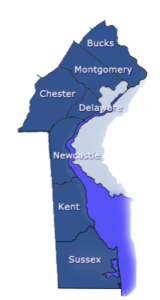A challenge to a decedent’s Last Will and Testament is, without question, the most difficult facet of dealing with a relative’s estate. Whether you are the proponent of the Last Will or the individual who felt unfairly cheated, a Will Contest will be financially and emotionally costly. Great care should be taken in considering a Will Contest or in defending one.
What are the basics? In general, a properly executed Will is presumed valid. Courts recognize that an individual possesses testamentary capacity (the ability to create a Will) if he has intelligent knowledge regarding the natural objects of his bounty, what his estate consists of, and what he desires done with his estate. This is true even though his memory may have been impaired by age or disease.[1]
It’s also important to know that testamentary capacity is evaluated at the time the Will is executed.[2] However, evidence of incapacity for a reasonable time before and after the making of a Will is admissible as an indication of lack of capacity on the day the Will is executed.[3]
In order to successfully challenge a Last Will, the challenger must establish what is called a prima facie case of undue influence. The challenger must present proof of the following elements, through the presentation of clear and convincing evidence:
(1) a person who is in a confidential relationship with the Testator (a “Testator” is another name for the person whose Will it is);
(2) receives a substantial benefit under the proposed Will; and
(3) at or around the time the Will is executed, the Testator has a weakened intellect.[4]
Who is in a “Confidential Relationship”? That is a difficult question. This is a very fact specific issue. People who are in confidential relationships with a Testator can include a relative or a caregiver. This can also include someone who has fiduciary responsibilities, such as a lawyer or accountant. Essentially, it can be anyone who is in, or who puts themselves in, a situation where they have access to the Testator. Courts will also look to situations where the access is exclusive (meaning, where others are prevented from gaining access to the individual being influenced).
So how do you know if someone received a “substantial benefit” under a Will? It is well-settled that whether the proponent of a Will receives a substantial benefit is determined by examining the facts and circumstances of each case with consideration given to prior Wills executed by the Testator.[5] To that point, “[t]here is no hard and fast rule to ‘exactly define the character of the benefit or the extent of the interest [that] the confidential advisor must receive.’”[6]
What is “Undue Influence? The resolution of a question as to the existence of undue influence is inextricably linked to the assignment of the burden of proof. Once the proponent presents evidence of the proper formation of the Will, a presumption of lack of undue influence arises; the effect is that the risk of non-persuasion and the burden of coming forward with evidence of undue influence shift to the contestant (the individual challenging the Last Will). Once the contestant proceeds with his proof, there are two viable rules of law in this Commonwealth which allow the contestant to shift the onus of going forward with evidence back to the proponent. The older rule is that where the evidence shows (1) bodily infirmity and (2) greatly weakened mental capacity of the Testator, and (3) a stranger to the blood of Testator, (4) standing in a confidential relation, (5) who is benefited by a Will (6) which he has been instrumental in having written, a Presumption of undue influence arises.[7]
The more recent rule is that where (1) a person in a confidential relationship (2) receives the bulk of the Testator’s property (3) from a Testator of weakened intellect, the burden of proof is upon the person occupying the confidential relation to prove affirmatively the absence of undue influence.[8]
How important is the testimony of the attorney (the scrivener) who drafted the Last Will? That’s an excellent question. Often times the Court will give greater weight to the scrivener, but that is not always the case. In In re Mampe,[9] the Court affirmed the trial court’s decision to give greater weight to the testimony of lay witnesses as opposed to the scrivener where the person charged with undue influence made the appointment for Testator and attended the first meeting with the attorney. The Mampe Court concluded:
[T]his Court’s collective sense of justice, is not shocked at the trial court’s conclusion that Attorney Durante’s testimony was of limited value in probing the weakness of Mrs. Mampe’s intellect in the time period prior to the making of the 2002 will and trust. As stated above, Attorney Durante did not know Mrs. Mampe prior to their first meeting, in January 2002, and, therefore, his observations as to her mental acuity, though important, were not entirely dispositive of the question before the trial court, i.e., whether Mrs. Mampe’s weakened intellect led her to execute a will and trust that were the product of undue influence. Consequently, the trial court’s analysis placed greater weight on the observation of Mrs. Mampe’s behavior by individuals that knew her far longer than Attorney Durante.
As you can see, the Court may not necessarily believe the word of the attorney who wrote the Will.
Conclusion
These considerations are very fact-specific. There are few hard and fast rules. Challenge to a decedent’s Last Will can be one of the more difficult areas of the law. This should never be taken lightly.
[1] In re Estate of Hunter, 416 Pa. 127, 135, 205 A.2d 97 (1965).
[2] Stafford Will, 25 Fiduc. Reptr. 2d 265, 278 (citing Williams v. McCarroll, 374 Pa. 281, 293, 97 A.2d 14, 20 (1953).
[3] In re Estate of Hastings, 479 Pa. 122, 127, 397 A.2d 865, 867 (1978) (further citations omitted).
[4] Estate of Clark, 461 Pa. 52, 59-60, 334 A.2d 628, 632 (1975).
[5] In re Estate of LeVin, 419 Pa. Super. 89, 96, 615 A.2d 38 (Pa. Super. 1992); In re Estate of Easby, 2008 Phila. Ct. Com. PL LEXIS 152, *22 (Phila. Cty. 2008).
[6] Estate of Stout, 2000 Pa. Super 37, P9, 746 A.2d 645, 648 (2000).
[7] See, Boyd v. Boyd, 66 Pa. 283, 293-94 (1870); Wilson v. Mitchell, 101 Pa. 495 (1882). Stewart Will, 354 Pa. 288, 296, 47 A.2d 204 (1946); Quein Will, 361 Pa. 133, 62 A.2d 909 (1949).
[8] Cuthbertson’s Appeal, 97 Pa. 163, 171 (1881); Yorke’s Estate, 185 Pa. 61, 69, 39 A. 1119 (1898); Button Estate, 459 Pa. 234, 328 A.2d 480, 483 (1974), and cases cited therein at n. 6.
[9] In re Mampe, 2007 Pa. Super. 269, 932 A.2d 954 (2007).

Robert A. Burke is an active trial attorney who has tried cases to verdict in six different jurisdictions. His practice is focused on complex commercial and estate and trust litigation. This includes trial and appellate work in federal, state and international courts. He regularly presents matters before alternative dispute resolution panels and frequently lectures on trial tactics, practice and procedure. Bob can be reached at 610-840-0211.









